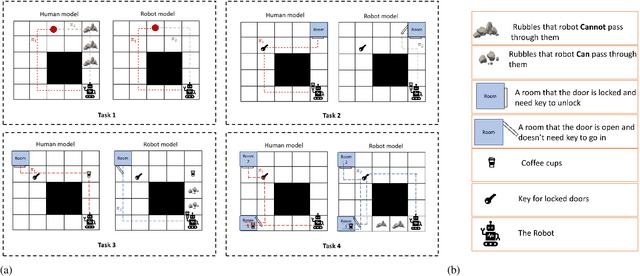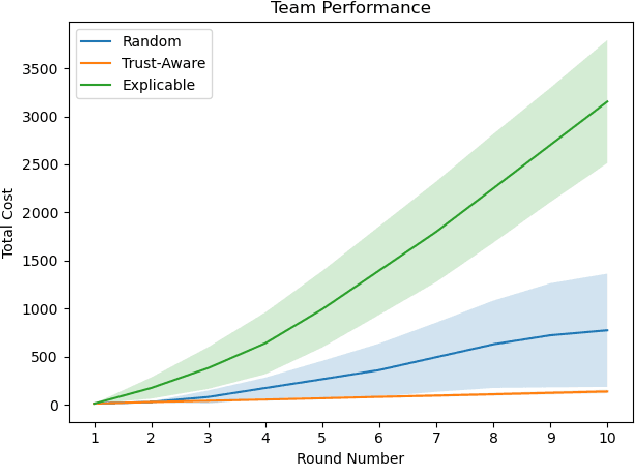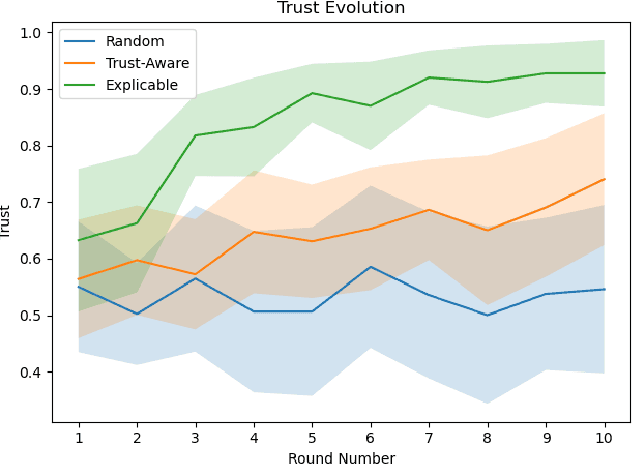Trust-Aware Planning: Modeling Trust Evolution in Longitudinal Human-Robot Interaction
Paper and Code
May 03, 2021


Trust between team members is an essential requirement for any successful cooperation. Thus, engendering and maintaining the fellow team members' trust becomes a central responsibility for any member trying to not only successfully participate in the task but to ensure the team achieves its goals. The problem of trust management is particularly challenging in mixed human-robot teams where the human and the robot may have different models about the task at hand and thus may have different expectations regarding the current course of action and forcing the robot to focus on the costly explicable behavior. We propose a computational model for capturing and modulating trust in such longitudinal human-robot interaction, where the human adopts a supervisory role. In our model, the robot integrates human's trust and their expectations from the robot into its planning process to build and maintain trust over the interaction horizon. By establishing the required level of trust, the robot can focus on maximizing the team goal by eschewing explicit explanatory or explicable behavior without worrying about the human supervisor monitoring and intervening to stop behaviors they may not necessarily understand. We model this reasoning about trust levels as a meta reasoning process over individual planning tasks. We additionally validate our model through a human subject experiment.
 Add to Chrome
Add to Chrome Add to Firefox
Add to Firefox Add to Edge
Add to Edge